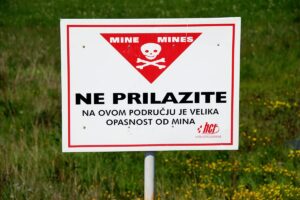Excise duties are among the oldest forms of tax, with the Dutch having taxed beer and other alcoholic beverages, salt and sugar as far back as the 16th century. Their modern purpose is to compensate for the negative impact of the products they are applied to, because the burning of petroleum derivatives indisputably causes environmental pollution and human illness, vehicles wear out roads that must be maintained, while consuming cigarettes, alcohol and coffee increases the risk of numerous diseases that are often treated at the collective expense of taxpayers.
As an example, total healthcare and road maintenance costs equal the revenue generated from excise duties. However, if the revenue from excise duties served only to cover the costs of the damage caused by the use of excise products, they would need to be several times lower than is currently the case, but it is easier for governments to increase budget revenues by increasing excise duties than increasing other tax rates – as excise taxes are not visible directly, unlike taxes on income, property or profits, so raising them tends to meet with less resistance.
Increasing excise duties boosts budget revenues more easily than raising other tax rates, because excise duties are less visible than income, property or profit taxes
And that was the case in Serbia this 1st May, when new, higher excise duties were set on fuel, coffee and alcohol, with the aim of harmonising budget revenue with last year’s inflation of 7.6%. Accordingly, excise duty with VAT on fuel is up by 4.5 to 5.7 RSD, excise duty on alcoholic beverages is up from 26.8 and 30.72 RSD per litre, the coffee tariff is up from 108.06 to 405.24 RSD per kilogram, while excise duty on liquids for filling electronic cigarettes has been set at 10.4 RSD per millilitre. Excise duties on cigarettes have also been hiked, but the new tariff, amounting to 99.41 RSD per pack, was valid not from 1st May, but from 1st July to 31st December 2024. With the average price per pack standing at around three euros, Serbia is still among the region’s cheapest countries for cigarettes, despite excise duties accounting for 61% of the retail price.
On the basis of collected excise duties, state coffers receive the most from petroleum derivatives. Serbia’s 2023 budget relied on revenues of 362 billion RSD from excise duties, while this figure is expected to grow in 2024 and total 395 billion RSD, but we’ll only know for sure at the start of next year.






